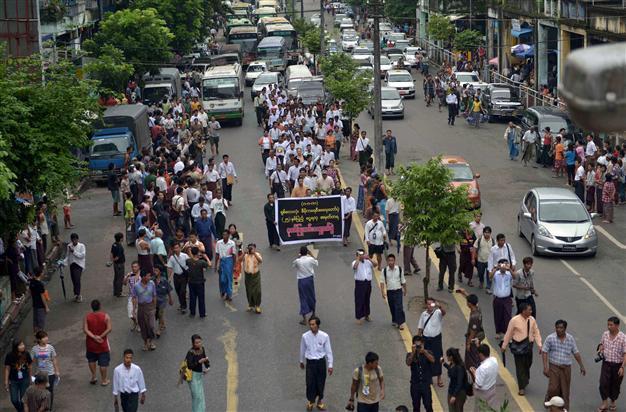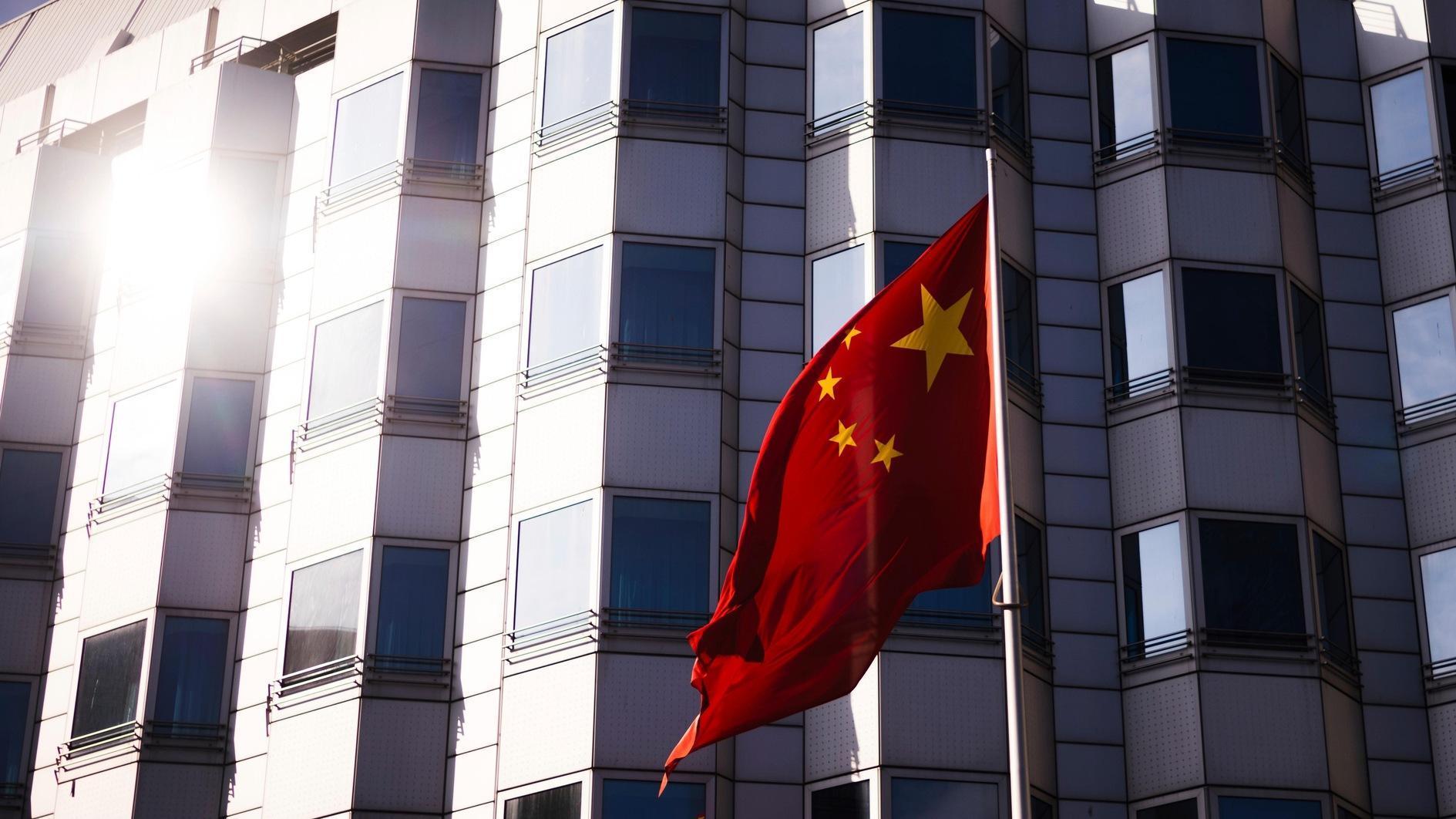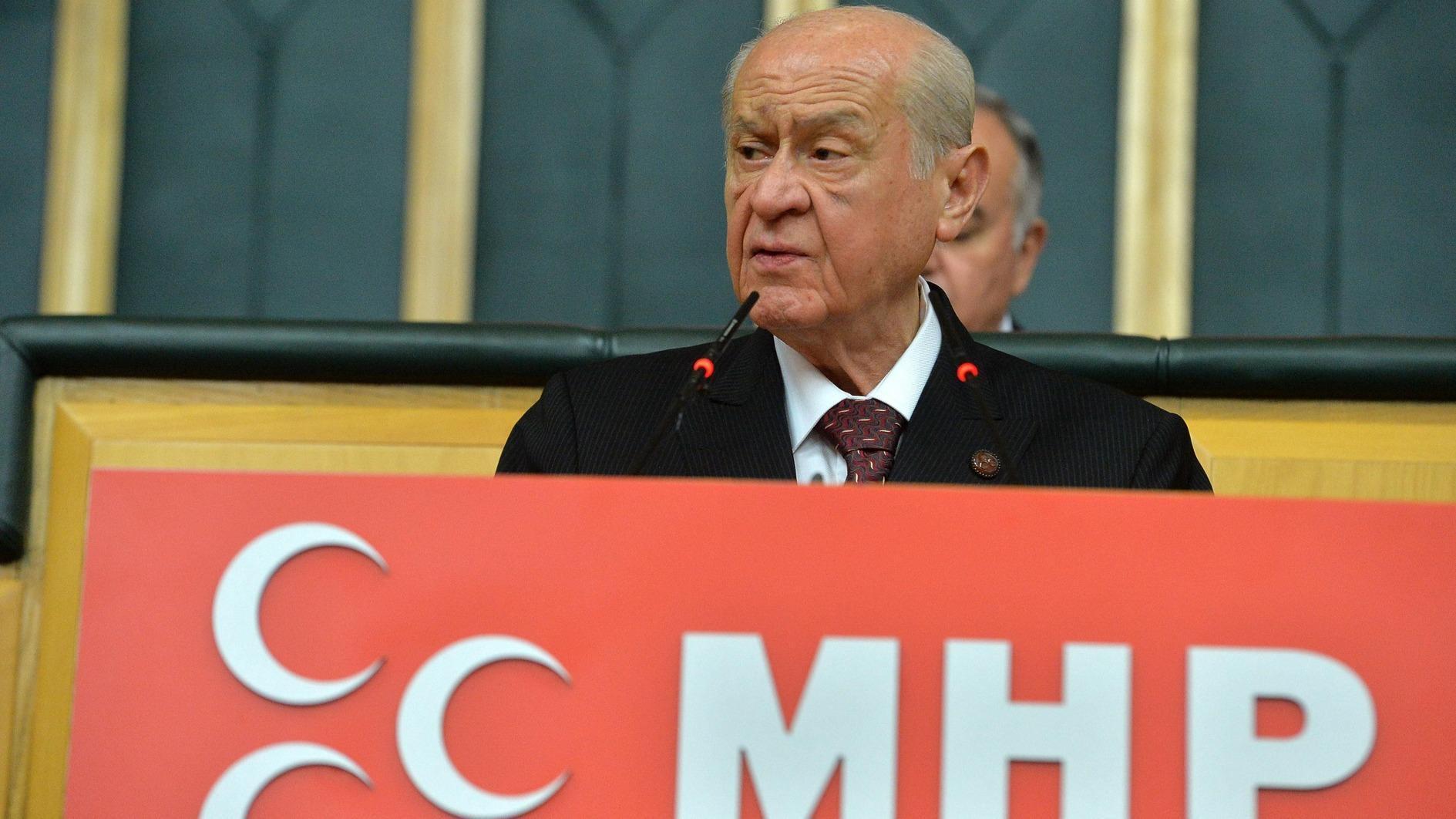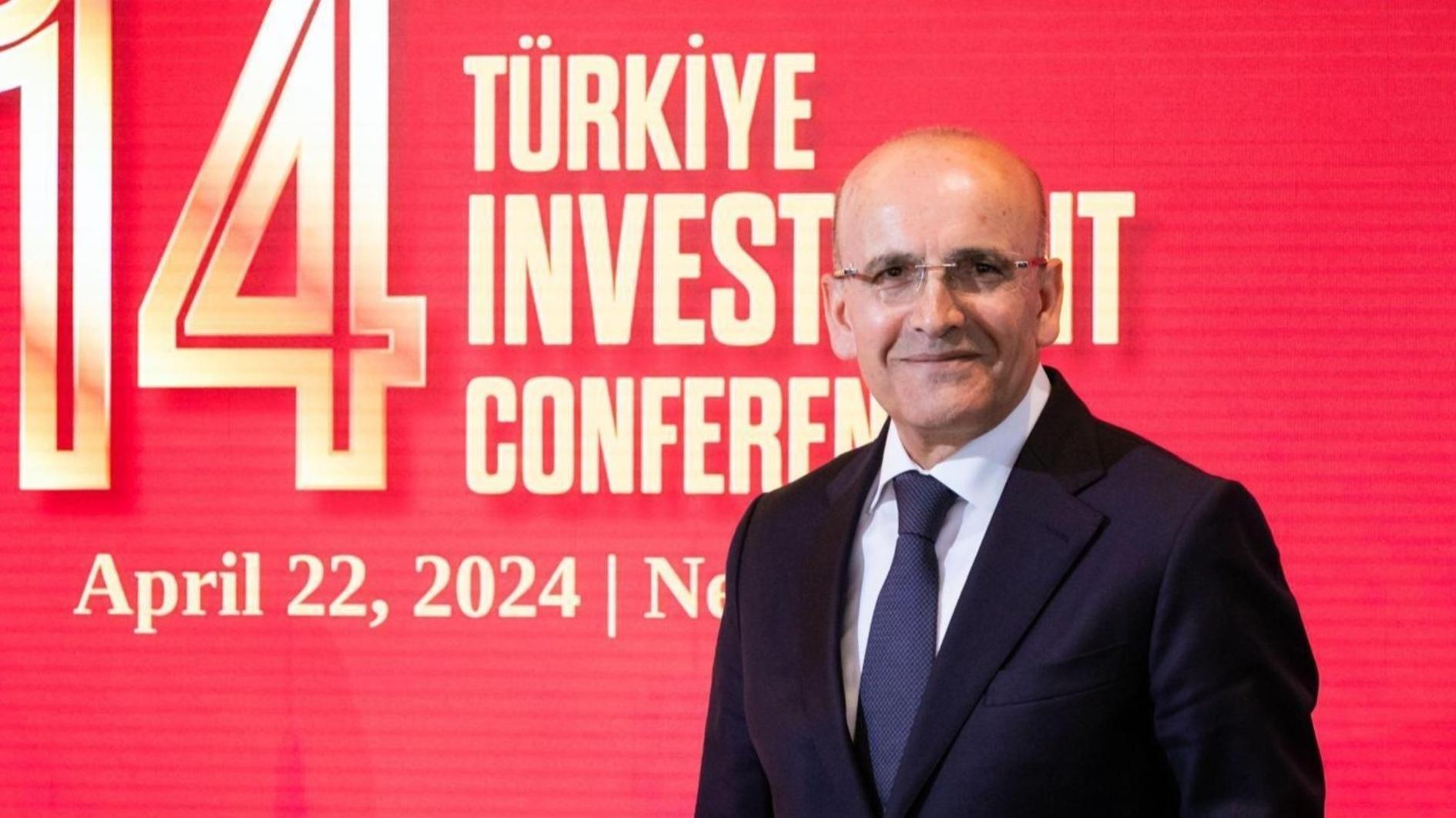Thousands mark anniversary of Myanmar junta crackdown
YANGON - Agence France-Presse

People in Yangon march to mark the 25th anniversary of the democratic uprising, also known also as "8888", on August 8, 2013. AFP photo
Thousands massed in Yangon Thursday to mark the anniversary of a bloody crackdown on Myanmar rallies 25 years ago, in a historic commemoration urging further democratic reform.Some five thousand people crammed into a convention centre and thousands more watched large television screens outside to witness a landmark ceremony recalling the huge 1988 student protests that were brutally crushed by the then-junta.
The event, attended by members of the opposition and ruling parties, diplomats and Buddhist monks, comes amid sweeping changes in Myanmar since the end of outright military dictatorship two years ago.
It was aimed at further propelling democratic reforms.
Activists expressed jubilation at the scale of the event, but urged even more people to join in. "8888 (as the anniversary is known) is the biggest milestone in our history. It's unforgettable," Aye Myint, who joined in the protests in 1988, told AFP.
"Many more people should join the event. It's just a few if you compare with the people who participated in the democracy uprising 25 years ago." A vicious military assault on student-led demonstrations against Myanmar's military rulers on August 8, 1988 sparked a huge popular uprising against the junta.
Hundreds of thousands took to the streets across the country calling for democracy, in protests that came to a brutal end the following month with an army crackdown that killed more than 3,000.
Myanmar has undergone sweeping political changes since a quasi-civilian regime replaced junta rule in 2011. Reforms have included the freeing of hundreds of political prisoners -- many of whom were jailed for their roles in the 1988 rallies -- and the welcoming of democracy champion Aung San Suu Kyi and her party into parliament.
The Nobel laureate, who was taking part in Thursday's commemorations, rose to prominence during the protests.
She had been living in London but returned to Yangon in 1988 to nurse her sick mother, and was quick to take a leading role in the pro-democracy movement, delivering speeches to the masses at Yangon's Shwedagon Pagoda.
Ko Ko Gyi, a key figure in the 1988 protests and a leader of the 88 Generation activist group said campaigns to push Myanmar further on the path to democracy should maintain "the spirit" of the student rallies. "We cannot erase history. The situation of the country today is a result of the 1988 people's movement. Although we have not reached the situation we want, we are at the beginning of the road," he told AFP.
Earlier, hundreds of people watched some 50 campaigners march through downtown Yangon in an unauthorised procession that irked local law enforcers. Marchers refused to halt when the head of police in the area asked them to stop. Police allowed them to continue, standing aside but taking pictures of those involved.
"I don't think we need to get permission... we do not want to protest, we just want to express our respect. We are just walking," said Tun Tun Oo, a 49-year-old businessman who was a student protester in 1988.
Activists also laid wreaths at Sule Pagoda in the centre of Yangon, which was at the heart of the August 8 crackdown.
Win Min, a former student protester, said the scene in the area 25 years ago was "the worst and most unforgettable of my life".
"We want to show our sorrow for the dead today and to show them we are moving forward to the goal of democracy... we promised them we would continue," he told AFP.
















